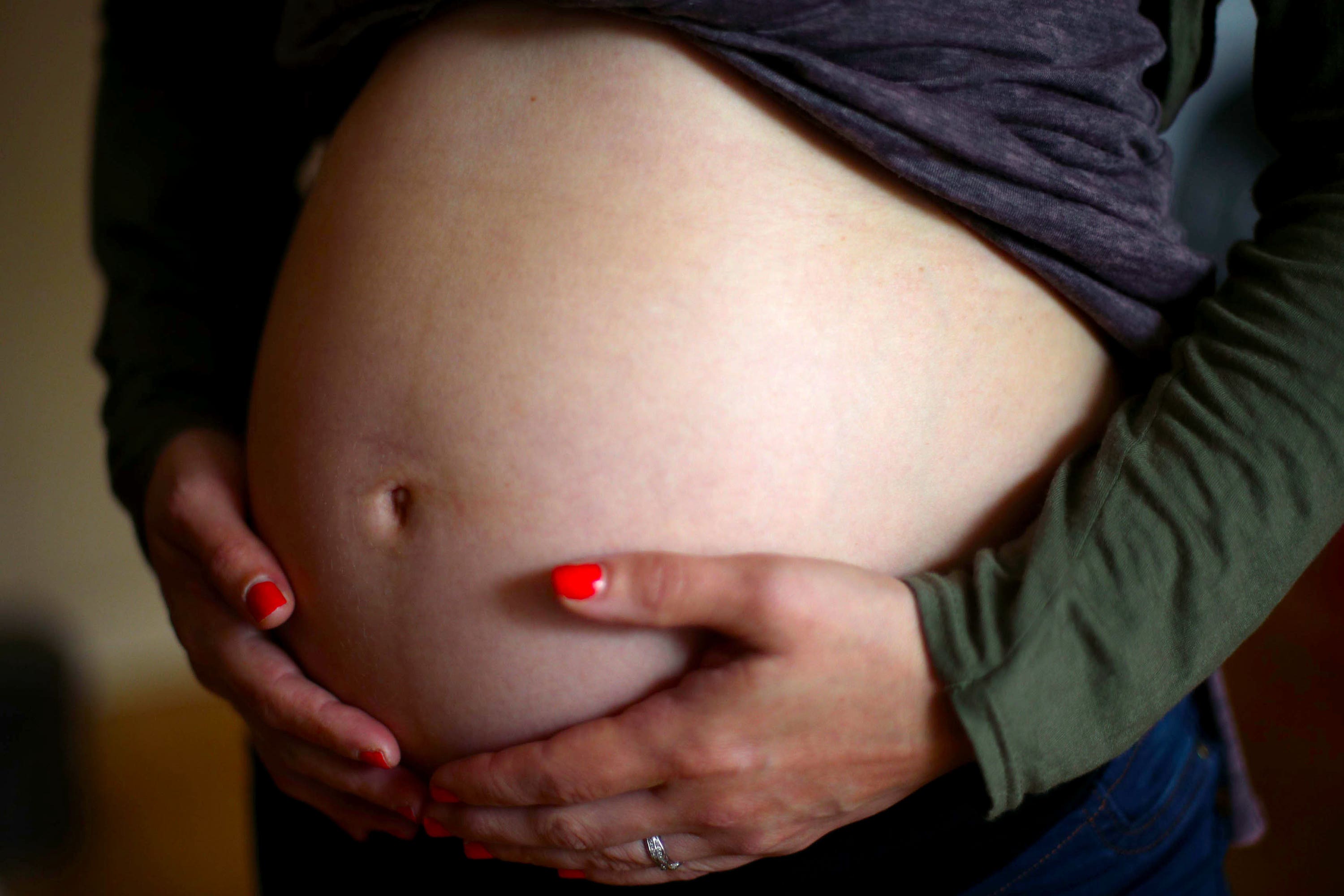Pregnant women urged to get vaccinated amid surge in whooping cough cases
The bacterial infection can be particularly serious in young babies.

Your support helps us to tell the story
From reproductive rights to climate change to Big Tech, The Independent is on the ground when the story is developing. Whether it's investigating the financials of Elon Musk's pro-Trump PAC or producing our latest documentary, 'The A Word', which shines a light on the American women fighting for reproductive rights, we know how important it is to parse out the facts from the messaging.
At such a critical moment in US history, we need reporters on the ground. Your donation allows us to keep sending journalists to speak to both sides of the story.
The Independent is trusted by Americans across the entire political spectrum. And unlike many other quality news outlets, we choose not to lock Americans out of our reporting and analysis with paywalls. We believe quality journalism should be available to everyone, paid for by those who can afford it.
Your support makes all the difference.The number of cases of whooping cough in England was higher in February than in the whole of 2023, according to new figures.
The UK Health Security Agency (UKHSA) has urged pregnant women to ensure they get vaccinated against the illness after it emerged uptake of the jab declined between October and December last year.
The bacterial infection, also known as pertussis, affects the lungs and breathing tubes.
It spreads very easily and can sometimes cause serious problems.
There were 913 laboratory-confirmed cases in England in February, up from 555 in January.
This is compared with the 858 cases reported to the UKHSA pertussis enhanced surveillance programme for the whole of 2023.
Initial symptoms of whooping cough are similar to a cold, but after about a week patients develop coughing bouts that last for a few minutes and are worse at night.
Young babies may also make a distinctive “whoop” or have difficulty breathing after a bout of coughing.
The impact of the Covid-19 pandemic led to “exceptionally low” cases of whooping cough in England between April 2020 and last summer, the UKHSA said.
Figures for 2023 remained below pre-pandemic levels.
Getting the whooping cough vaccine in pregnancy is a highly effective way to protect your baby in the first few months following birth
Of the 1,468 confirmed cases in January and February, some 49.7% were in patients aged 15 and older, while 30.0% were in children aged between 10 and 14.
The number of cases in babies under three months – who are most at risk of complications – rose to 48 in 2023 from two in 2022.
However, the number remains lower than the 83 pre-pandemic cases in 2019 and the peak 407 cases during the 2012 outbreak.
The NHS recommends all pregnant women are vaccinated against whooping cough between 16 and 32 weeks.
Immunity from the jab passes through the placenta to protect newborn babies in their first weeks of life.
Dr Mary Ramsay, director of public health programmes at the UKHSA, said: “Whooping cough can affect people of all ages, but for very young infants it can be particularly serious.
“Getting the whooping cough vaccine in pregnancy is a highly effective way to protect your baby in the first few months following birth.
I encourage all pregnant women to get vaccinated, ideally between 20 and 32 weeks, but you should still get the vaccine if you are further along in your pregnancy
“I encourage all pregnant women to get vaccinated, ideally between 20 and 32 weeks, but you should still get the vaccine if you are further along in your pregnancy.”
It comes as UKHSA figures revealed the mean coverage of the whooping cough vaccine in women who gave birth between October and December 2023 was 59.3%, some 2.1% lower when compared with the same period a year earlier.
The figure is also 15.7% lower compared with peak coverage in the same reporting quarter of 2016/17, according to the UKHSA.
Regionally, the lowest coverage and steepest decline since 2019 was in London.
Coverage in London was at its lowest in October at 36.3%, a difference of 24.6% from its peak in December 2019 (60.9%).
Coverage in the North West increased last year, rising by 7.8% between June and November.
Dr Ramsay also urged parents to ensure their children have their whooping cough jab when it is due as part of the NHS Childhood Vaccination Programme, or by catching up on any vaccines as soon as possible.
“If you are unsure, please check your child’s red book or get in touch with your GP surgery,” she added.